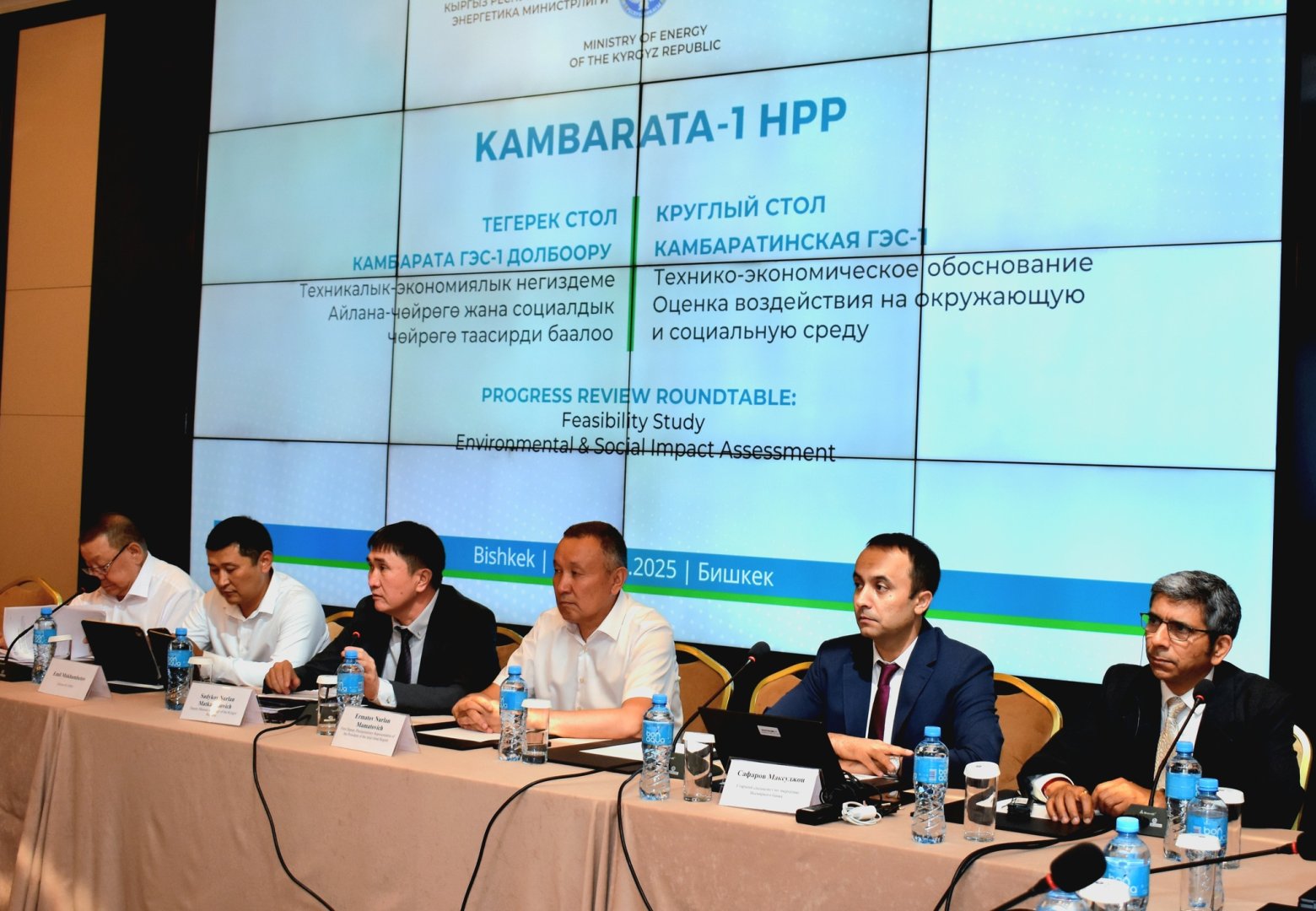BISHKEK, Kyrgyzstan, June 20. The Swiss engineering company AFRY has presented the feasibility study (FS) for the Kambarata hydropower plant-1 (HPP-1) in Kyrgyzstan, Trend reports via the country's Ministry of Energy.
The document was disseminated during a strategic roundtable
convened in Bishkek, concentrating on the project's developmental
trajectory. The gathering convened stakeholders from Kyrgyz
governmental ministries and agencies, delegations representing
Kazakhstan and Uzbekistan, as well as representatives from the
World Bank and an array of international expert panels.
The ministry asserts that the feasibility study functions as the
cornerstone for subsequent strategic planning and decision-making
processes, thereby guaranteeing the operational reliability, safety
protocols, and sustainability metrics of the forthcoming hydropower
infrastructure.
In the course of the meeting, pivotal engineering methodologies
were elucidated, complemented by seismic evaluation outcomes,
hydrological computations, and design frameworks—all meticulously
crafted in alignment with premier global engineering
benchmarks.
The international company SMEC, responsible for conducting the Environmental and Social Impact Assessment (ESIA), also presented relevant documentation. Special attention was given to minimizing and mitigating potential environmental and social impacts associated with the project. Discussions covered protection mechanisms for vulnerable ecosystems, biodiversity risk prevention measures, and approaches to address issues related to the use of pastures by local communities.
“This meeting is particularly important as we review the final project documents. The Kyrgyz Republic, together with partners from Kazakhstan and Uzbekistan, as well as the World Bank and international experts, has done extensive preparatory work to ensure that the Kambarata HPP-1 project fully complies with high international standards and requirements,” said Nurlan Sadikov, Deputy Minister of Energy of Kyrgyzstan.
The Kambarata HPP-1, with an installed capacity of 1860 MW on the Naryn river, is considered a strategic asset capable of enhancing Central Asia’s energy security. The World Bank is providing comprehensive support for this large-scale project, including updating the feasibility study, preparing environmental and social assessments, and developing a sustainable project framework.
Stay up-to-date with more news on Trend News Agency's WhatsApp channel







